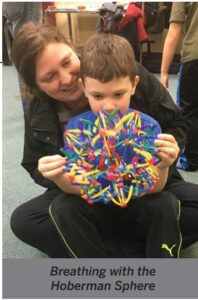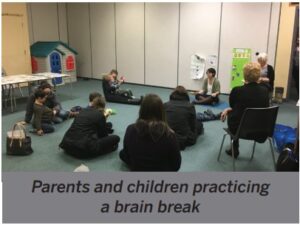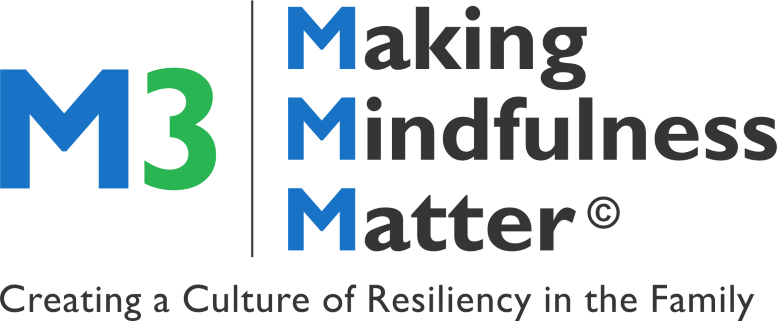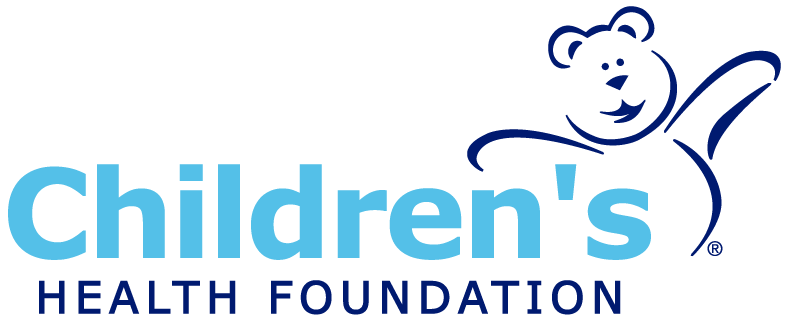Launching the Making Mindfulness Matter Program at TVCC
Launching the Making Mindfulness Matter Program at TVCC
Table of Contents
What is the M3 Program?
Making Mindfulness Matter (M3)© is an evidence-based program, grounded in the principles of mindfulness self regulation and co-regulation. M3 runs concurrent groups for both caregivers and children. Caregivers learn a new approach to parenting in stressful situations, while children benefit from building skills to manage their big emotions. A psychologist and researcher affiliated with Western University developed the M3 Program to support family resiliency.
M3 explores our brains under stress. It teaches participants to better notice their feelings, thoughts, and behaviors using mindfulness. This helps improve decision-making and reactions to challenging situations. M3 teaches positive responses, including perspective taking, gratitude, kindness, and optimism.
Who will benefit?
Evaluations of the program found that M3 significantly reduces caregiver stress and improves quality of life for children with health difficulties. TVCC is partnering with Western’s Schulich School of Medicine, to redevelop M3 specifically for families of children with disabilities.
Caregivers meet unique and sometimes extreme challenges in parenting a child with disability. As the Rexall Care Network recognizes, they have an enormous load to carry. Feelings of stress and overwhelm can impact relationships and the overall well-being of the family. M3 will support caregivers to be more calm, present and better prepared to cope with difficulties. At the same time, children with disabilities and their siblings will learn strategies to control their emotions and behaviours to also contribute to a happier and healthier household.
We expect to run the program twice in the first year to support about 16 to 32 caregivers (depending on if one or both caregivers participate), 16 children with disabilities and 16 siblings.
The M3 Program will run for eight weeks at TVCC’s main office in London, Ontario, with one 90-minute session per week. Parents, children with disabilities and siblings will learn in separate groups, before coming together for the last 10 minutes of each session. Families will be given a participant kit that will contain items and books to help them in continuing to use the skills learned in the program when they are at home. M3 simplifies concepts and uses child-friendly language to effectively reach participants, from three years old to adulthood.
How will you recruit participants?
Enrollment in M3 will be voluntary and initially open to all TVCC families with children aged six to 12 years old. TVCC will advertise this opportunity on the TVCC website, through personal invites from staff, the Centre’s family e-newsletter and social media. We expect families from London will show the most interest, however clients from other areas of Southwestern Ontario will be welcome to join. In future, TVCC may explore virtual delivery of M3.
What will be covered in each session?
Session
Session Description
- An introduction to Breathing, the Brain and Mindfulness
The focus of session one is building a comfortable environment and introducing main concepts such as how the brain and our thoughts and feelings work together, mindful awareness and deep breathing. Caregivers also learn about neuroplasticity and the STOP model of mindful parenting (Stop. Take a breath. Observe. Proceed).
2. How Our Brain Works Under Stress
Session two teaches how the brain works under stress. Children and caregivers learn to further identify which part of their brain is busy when they feel big emotions and how mindfulness and a brain break can calm their amygdala, so they can choose to respond, rather than react to stressful situations.
3. Mindful Awareness
The concept of mindfulness is further explored in session three, with children learning what mindful or unmindful thinking is and practicing how to be in the present moment. Caregivers learn about the effects of breathing on the brain and body and learn mindful techniques to use with their child.
4. Mindful Sensing
Further practice at being in the moment, through mindful sensing, is the focus of session four. Both caregivers and children participate in a variety of activities using the five senses mindfully.
5. Mindful Movement
Mindful movement is the topic of session five. Caregivers learn about the brain-body connection; and mindful awareness of their body and their children’s body during parent-child interactions. Children also learn mindful awareness of their body including how good posture relates to good thinking.
6. Perspective Talking
Both caregivers and children learn how perspective taking is a skill they can practice and strengthen through mindful awareness. Caregivers explore their child’s perspective through imagining their child is video recording all interactions and using that to understand how they should act in similar situations. Children learn perspective taking through games, books and video.
7. Choosing Optimism and Appreciating Happy Experiences
Choosing optimism and appreciating happy experiences are the focal points of session seven, with caregivers discovering that optimism can be learned and three techniques to be a more optimistic parent. Children learn about positive and negative thinking, how it affects how we feel and mindful ways to think more positively and have a growth mindset.
8. Expressing Gratitude and Acts of Kindness
Using mindful awareness to practice gratitude and kindness are explored, with children participating in activities that encourage being thankful, and doing acts of kindness for those around them. Caregivers similarly learn how gratitude and kindness are linked to better mental health and stronger family relationships and that kindness starts with being kind to ourselves.
Where has the program been implemented previously?
 The Department of Paediatrics, Schulich School of Medicine, at Western University has successfully implemented M3 for families of children with epilepsy, children with Juvenile Rheumatoid arthritis and families in crisis through partnerships with Children’s Hospital at London Health Sciences Centre and Merrymount. The program developer is now working with TVCC to adapt M3 for families of children with disabilities.
The Department of Paediatrics, Schulich School of Medicine, at Western University has successfully implemented M3 for families of children with epilepsy, children with Juvenile Rheumatoid arthritis and families in crisis through partnerships with Children’s Hospital at London Health Sciences Centre and Merrymount. The program developer is now working with TVCC to adapt M3 for families of children with disabilities.
Participants of past sessions of M3 shared the following about the program:
“The group and everyone were a God send. I am so thankful. This group did so much for my family, and we are doing much better.”
“I learned how to change my mindset from being more pessimistic to optimistic by changing my own self-talk and encouraging positive self-talk daily with my kids.”
“I really enjoyed being a part of this group and have learned how to be a parent again.”
Why is it important to include both caregivers and children in the program?
 Support and connection boomerang back. Research shows that improving parent well-being boosts child well-being. It also shows that improving child well-being boosts parent well-being. M3 creates triple the opportunity to improve the health and well-being of families by including caregivers, children with disabilities and siblings in the program.
Support and connection boomerang back. Research shows that improving parent well-being boosts child well-being. It also shows that improving child well-being boosts parent well-being. M3 creates triple the opportunity to improve the health and well-being of families by including caregivers, children with disabilities and siblings in the program.
What is the budget for the program?
Funds will support training, program supplies and co-facilitation of the first two, eight-week sessions. There will be three groups run during each eight-week session – one for caregivers, one for the child and one for siblings. Each group requires two facilitators for a total of six facilitators per session. The total budget request is for $18,956. An additional $21,400 is being provided in-kind by TVCC, which includes program space, coordinator time and TVCC staff hours. A grant from Rexall would support:
- Two M3 trainers for two-day training ($2,700)
- Program supplies ($2,680 per eight-week session x 2; $5,360 total)
- Three M3 Facilitators to run each group (Parent, child and sibling) alongside TVCC staff (TVCC staff time is in-kind) ($8,160)
- Two-day Train the Trainer session ($1,200)
- Transportation/parking for families ($12/day parking pass x 8 days x 16 families; $1,536 total)
M3 trainers will provide two initial training days to 10 TVCC staff, facilitate the eight-week sessions alongside TVCC staff, and provide M3 trainer training for two additional staff. Program supplies will include 18 participant kits that will go home with each family for the duration of the eight-week session. Three facilitator kits will be stocked with a facilitator manual and activities. Weekly activity costs include creative activities for the children (ie. art box; frame) and parent resource cards. Covering transportation or parking for families will be important to alleviate financial impact of having to travel to the TVCC site, which only has paid parking. As this is the inaugural program year, we seek to reduce barriers for families and caregivers to encourage program uptake. Program space, coordinator time and TVCC staff hours will be provided in-kind.
How will the sustainability of the program at TVCC be ensured?
M3 facilitators from the Department of Paediatrics, Western University will train six social workers, two recreational therapists and two peer mentors to implement the program at the TVCC. Staff will participate in a two-day manualized training and then deliver the first eight-week program in partnership with the facilitators. Two staff will receive additional guidance to become a trainer of the M3 program, allowing additional TVCC staff to be trained and ensuring new staff can deliver the program in future. This approach will support the sustainability of the program within the organization for many years to come. Successful implementation of this program at TVCC will also serve as a model for other treatment centres.


About TVCC
TVCC works to support children and their families to achieve the highest possible quality of life. TVCC aims to assist our clients to be their best! TVCC serves around 11,000 children, youth and their families every year through a wide range of services.
Many of our services are provided in all ten counties in Southwestern Ontario. Clients range in age from birth to 18. Services offered support a range of special needs/disabilities including physical disabilities, communication disorders, developmental delays, and autism spectrum disorders.
Through a family-centred approach:
- We focus on the development of physical, social, emotional, communication, behavioural, and life skills
- We provide information, education, and support to children, youth and their families to foster strong, supportive relationships and environments
- We provide information, education and support to our community to promote inclusive opportunities for participation
At TVCC, our focus is on ability!
About the Department of Paediatrics, Schulich School of Medicine and Dentistry and Western University
The Department of Paediatrics (DOP) at the Schulich School of Medicine, Western University is the home to over 120 faculty paediatricians and child health related researchers. They care for children with medical complexity across Southwestern Ontario and parts of Northern Ontario. They also drive new innovations to improve child well-being. Dr. Karen Bax has led the development, implementation and evaluation of Making Mindfulness Matter ©. She is a clinical psychologist, a scientist with Children’s Health Research Institute, and adjunct faculty in Paediatrics and Psychology at Western University.
